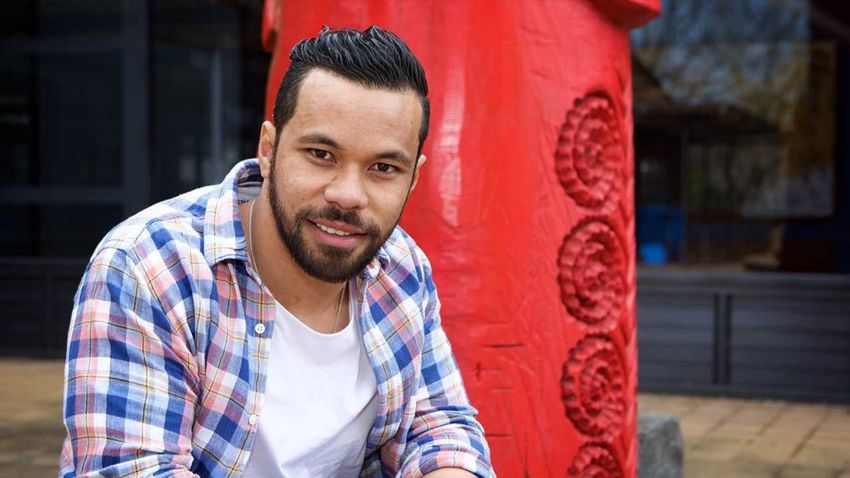Gagana Samoa builds trust with patient-doctor relationship

Junior doctor at Middlemore Hospital, Tuipoloa Opetaia Aati is using his mother tongue⎯ Samoan to break down cultural barriers in medicine to help connect with his patients and better understand their medical needs or diagnosis. He has at least one medical consultation in Samoan a week and is happy he can be a familiar and approachable face for Pasifika coming into the hospital.
“Having fluency in Samoan was definitely a skill I wanted to incorporate into my profession. I know it acts as a form of bringing down the barriers between the doctor and the patient and brings us on the same level. There is a power discrepancy in patient-doctor relationships, knowing Samoan helps in this way with Samoan patients,” he says.

“I hope that speaking Samoan helps Pacific patients to feel comfortable enough to converse freely with me during consultations. It also allows me to form a relationship with their family especially, if there is a family member that is responsible for taking care of them. For me, I always feel a sense of connection that expresses⎯yes, we're both not in our ‘home’ but our mutual language helps both parties feel connected and grounded.
Born in Moto’otua, Apia, Aati moved to New Zealand during his early schooling years. He’s always wanted to uplift Pasifika in his work and found medicine and health was the best pathway for him to do that.
In 2019, he was a recipient of the Pasifika Medical Association’s Dr Leopino Foliaki University of Auckland Scholarship. Worth $10,000 per recipient, the scholarship is awarded to a Pacific male and female student in their sixth year of studying a Bachelor of Medicine and a Bachelor of Surgery (MBChB) at the University of Auckland.

“I feel so privileged to have got the scholarship. It’s named after the late Dr Foliaki who holds a really important place within Pacific health so, I feel happy and proud that I have that kind of association with him. The scholarship was given to me at a Pasifika Medical Association ball and that was also a good way to meet and be introduced to other health professionals as well.”
Previously living in New Plymouth, Opetaia says he’s utilised some of the scholarship fund to buy a car to help him get to work.
“Living in New Plymouth I didn’t need a car as I would walk to work every day. Now, being based in Auckland and working in a different hospital to my partner (who is also a doctor) and working unsociable hours, having a car at times is very necessary.”
The thirty-three-year-old says most students study medicine as a pathway to serve their communities. But, acknowledges how helpless you can feel during the “grueling” six-years of medical school.

“When you start working and you begin meeting Pasifika clients at work, then you’ll understand how helpful you can be to your community,” he says.
“That patient relationship is definitely the highlight of my job too. I always used to think it was cheesy when doctors said that but it’s true. There can be quite a lot of bureaucracy in the job, lots of paper work, but meeting people in the community and patients is the best thing.”
.
* The late Dr Leopino Foliaki was the first Tongan doctor in New Zealand. Born in a small village near Nuku‘alofa he moved his family to New Zealand in the late 1960’s. As well as being a doctor, he often filled the role of a counselor and assisted many Tongans to find jobs when they first arrived in New Zealand. He was a leader in the Tongan community and a pioneer in Pacific health issues establishing the Pacific Health and Welfare Committee in 1978 with Dr Papali’i Semisi Ma’ia’i. It was set up to remedy the need for ethnic-specific health services which were non-existent at the time. Since then it has become the backbone of many Pacific health initiatives.
.
Opening date for all 2020 scholarships is Monday 25 May 2020 and applications close on Friday 3 July 2020.
Please see the link to apply:
